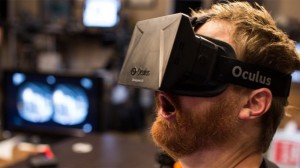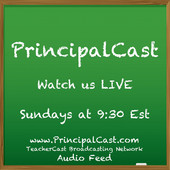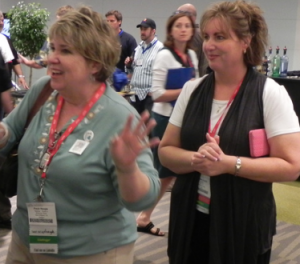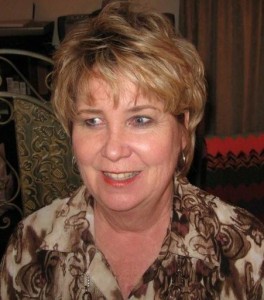 In an age where social media platforms dominate our digital landscape, taking a step back from the constant scroll can feel like a radical act of self-care. Recently, I embarked on a month-long hiatus from TikTok, Facebook, and Instagram, eager to reclaim my time and attention from the grips of algorithmic feeds. It was right after I turned 50, and was done with purpose and intention to see what the world would look like without this constant scrolling. What ensued was not only a personal journey of introspection but also a fascinating observation of the digital ecosystem that surrounds us.
In an age where social media platforms dominate our digital landscape, taking a step back from the constant scroll can feel like a radical act of self-care. Recently, I embarked on a month-long hiatus from TikTok, Facebook, and Instagram, eager to reclaim my time and attention from the grips of algorithmic feeds. It was right after I turned 50, and was done with purpose and intention to see what the world would look like without this constant scrolling. What ensued was not only a personal journey of introspection but also a fascinating observation of the digital ecosystem that surrounds us.
The first few days were marked by a sense of withdrawal, an urge to reach for my phone and mindlessly scroll through endless streams of content. However, as the days passed, I found myself rediscovering the simple joys of life beyond the screen. I delved into books I had long neglected, engaged in meaningful conversations with friends and family, and even carved out time for hobbies I had set aside.
One of the most striking realizations during this time was the impact of algorithms on my digital consumption habits. Freed from the curated content of social media platforms, I found myself exploring alternative sources of information, including news apps. Here, I encountered a different kind of algorithm—one that tailored news stories based on my interests and browsing history.
Interestingly, I noticed patterns emerging in the news articles presented to me. Topics that aligned with my previous online activity were prioritized, reinforcing the echo chamber effect that algorithms often create. This raised questions about the role of algorithms in shaping our worldview and the importance of seeking diverse perspectives beyond the confines of personalized content.
Moreover, the absence of social media platforms highlighted the subtle ways in which these platforms strive to keep users engaged. I began receiving emails from TikTok, Facebook, and Instagram, notifying me of activity from friends and acquaintances. While seemingly innocuous, these notifications served as gentle nudges, tempting me to re-engage with the platforms.
Reflecting on this experience, I realized the power of intentionality in shaping our digital lives. By consciously stepping away from social media, I gained greater clarity about the role these platforms play in my daily routine and mental well-being. I learned to prioritize genuine connections over virtual validation and discovered the value of being present in the moment.
As I reintegrate into the digital realm, I do so with a newfound awareness of the algorithms that govern our online experiences. I strive to approach social media mindfully, recognizing its potential for both connection and distraction. By striking a balance between digital engagement and real-world experiences, I hope to navigate the ever-evolving landscape of social media with intention and authenticity.
In conclusion, taking a month’s break from TikTok, Facebook, and Instagram was not merely a hiatus from scrolling—it was a journey of self-discovery and reflection. It offered insights into the workings of algorithms, the allure of personalized content, and the importance of reclaiming control over our digital lives. As we navigate this digital age, may we remain vigilant, mindful, and intentional in our interactions both online and offline.
 About the Author
About the Author
Spike Cook, Ed.D., Principal, RM Bacon Elementary, Millville, NJ. In addition to being a Principal, Dr. Cook published two books through Corwin Press (Connected Leadership: It’s Just a Click Away; Breaking Out of Isolation: Becoming a Connected School Leader). He is the co-host of the popular PrincipaPLN podcast and a regular on the Unlock the Middle Videocast. His blog, Insights Into Learning, was recognized as a finalist for Best Administrator Blog by the EduBlog Awards. Spike earned his Doctorate from Rowan University and is an Adjunct Faculty member in the Masters of School Administration Program He is featured in Twinkl’s 30 Education Influencers You Need to Follow and Klear’s Top Ten Middle School Influencers. Dr. Cook is also on the Education Advisory Board for Whole Health Ed. Connect with @drspikecook via Twitter, YouTube, LinkedIn, Facebook or Instagram.
 Disclosure – This post was written with the help of Chat GPT
Disclosure – This post was written with the help of Chat GPT  How many times during the COVID 19 Pandemic have you heard this phrase, “We are living in unprecedented times.” No truer words have been spoken. Our entire world has been impacted and we are going to need our educational institutions to be prepared with a different way of doing things.
How many times during the COVID 19 Pandemic have you heard this phrase, “We are living in unprecedented times.” No truer words have been spoken. Our entire world has been impacted and we are going to need our educational institutions to be prepared with a different way of doing things.
 Spike Cook,
Spike Cook,






